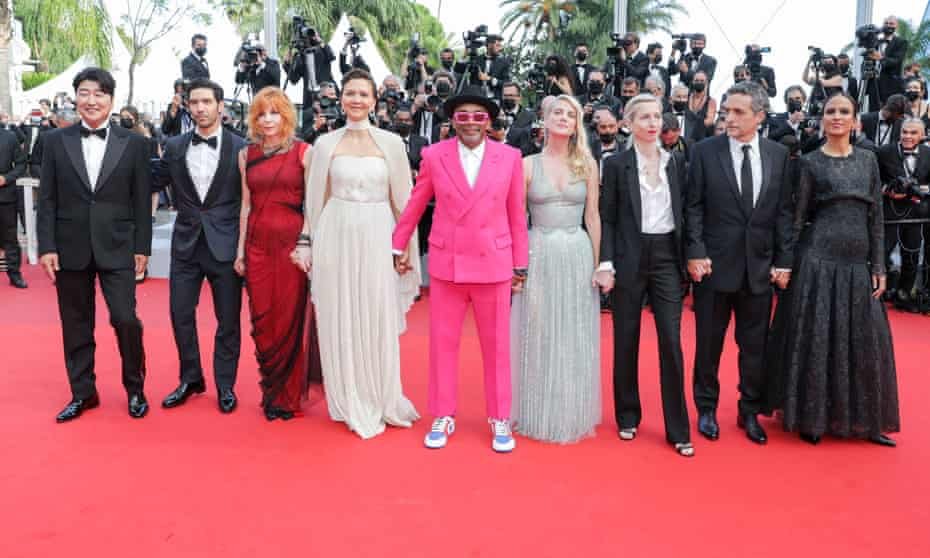They Cannes Not Keep It Together
We're back in 2021 with another pun titled Cannes write up and it's honestly disheartening to keep seeing this festival inch forward towards equality and yet somehow keep itself firmly in the same position year after year.
The biggest news to come out of Cannes was Julia Ducournau winning the Palme d’Or for her film Titane, only the 2nd time in history this award has been won by a woman, previously going to Jane Campion for her film The Piano in 1993. But the overall competition numbers remain largely the same with only 4 female directed films out of 24 in the competition section. That's yet again 16% of the total films and yet again not nearly enough progress for such a prestigous festival. Particularly a festival that took a pledge in 2018 to be gender equal in their film selections by 2020. Out of the total 63 films that showed this year only 18 were directed by women. Festival director Thierry Fremaux doesn't seem to think there are enough women making movies to even achieve a 50/50 split anyway saying, "In many countries, the presence of women is not strong enough."
I wonder why that is?
Photograph: Stephane Cardinale/Getty Images
The most gender equality we can see is in the festival's jury with 5 out of 9 of the jurers being female this year. Headed by Spike Lee this year the jury featured director Mati Diop, singer/songwriter Mylène Farmer, actress/director Maggie Gyllenhaal, writer/director Jessica Hausner, actress/director Mélanie Laurent, writer/director Kleber Mendonça Filho, actor Tahar Rahim, and actor Song Kang-ho.
Despite the disappointing competition numbers there is a general upwards trend of overall female directed films being selected to show at the festival. In 2016 when I started this blog there were only 9 female directed films shown at the festival. So in 5 years they have managed to double that number, which is progress that shouldn't be disregarded. It is hard to keep believing that there are not enough women out there making films though. I speak with talented women all the time who are making films. The problem is that they are not being given the funds, nor the platforms with which to make a name for themselves. Equality isn't going to fall out of the sky and combating factors like unconscious bias takes work, work that festival director Thierry Fremaux needs to put in a little more of to make good on Cannes 5050 pledge from 3 years ago.
Cannes has also gotten into the habbit of patting itself on the back when the number of female directed films goes up slightly, boasting in 2020 the "significant increase" of female directed films as part of its lineup at just 23% total. Similarly this year organisers stated the gender represation in the festival lineup was the "joint best-ever with 2019" which co-chair of Times Up UK Critics Sophie Monks Kaufman, called "embarassing" as statistically the competition selection grew from 21 to 24 films this year yet kept the same amount of female directors. It's statements like these that indicate how much Cannes feels like what has been achieved is enough when they are not even close to their 2018 KPI of 50%.
Director Julia Ducournau won the Palme d'Or for her film "Titane" © AFP - Christophe Simon
To truly see "significant" progress significantly more work needs to be done from the industry as a whole. Equal gender representation shouldn't rest solely on Cannes shoulders, or the Oscars or Golden Globes for that matter, but it's important to recognise the part that big festivals and award shows have in shaping what the general public and the industry will accept as normal. Remember how critics were skeptical of films with sound and now you can't imagine a world without talking film? Well in 1930 The Broadway Melody was the first sound film to win an Oscar contributing to the validation of sound film and the global phenomenon that shaped cinema as we know it today. Imagine if award shows and festivals like Cannes stood front and centre in the worlds eye and presented equitable lineups of films. There would no longer be any doubt of the validity of female filmmakers and we could spend our energy making the content that we love to make instead of fighting for the permission to make it.


